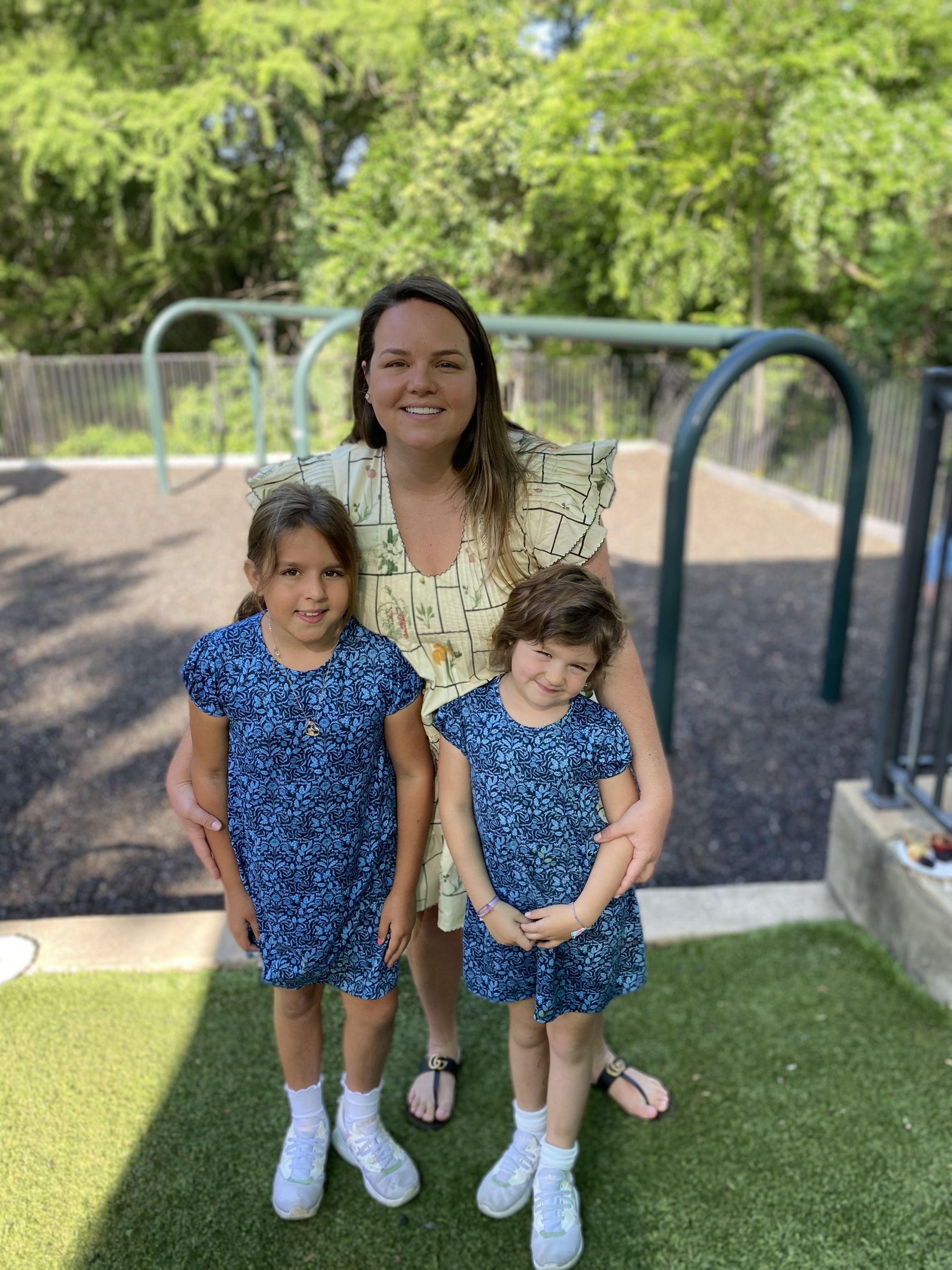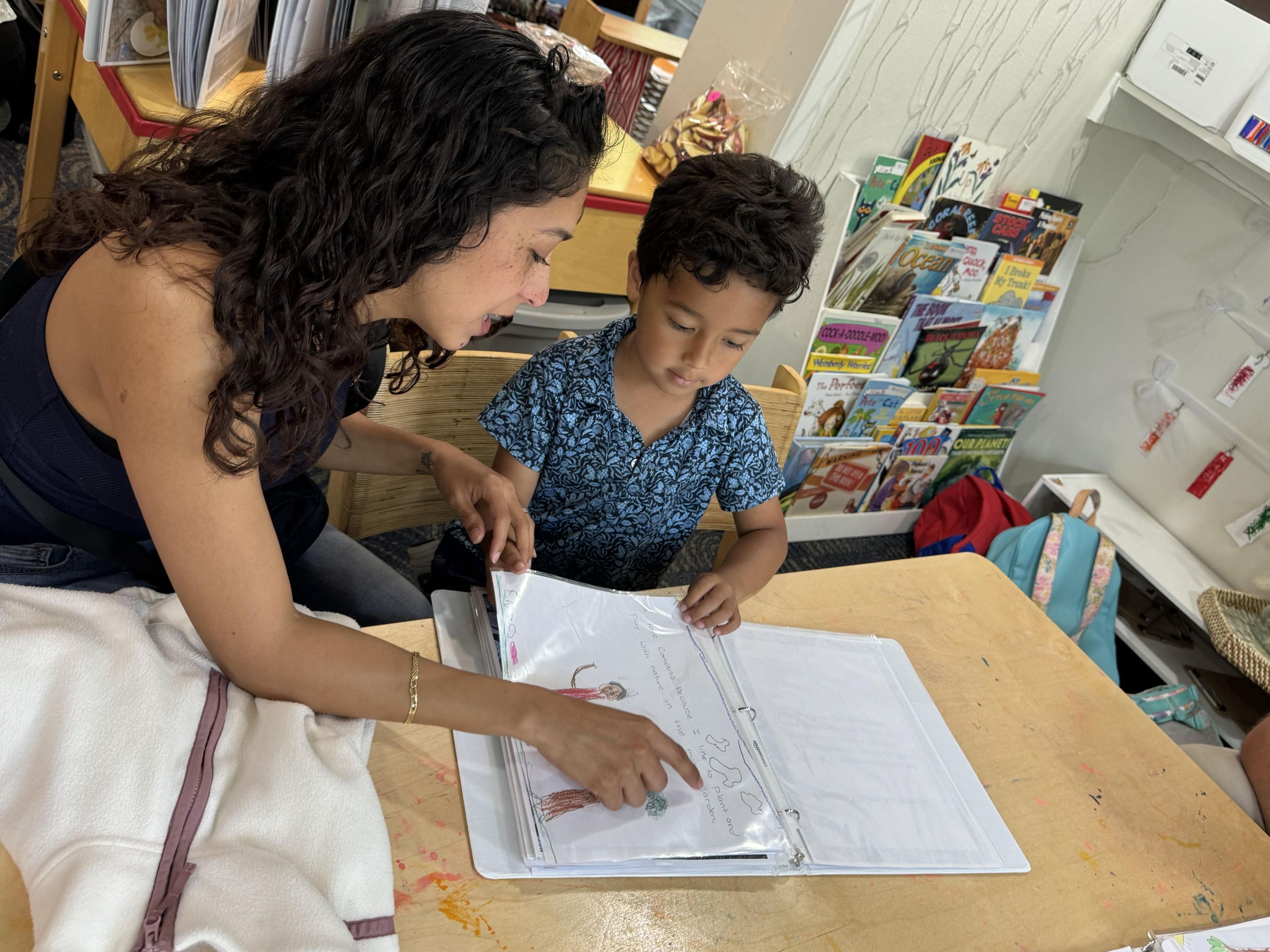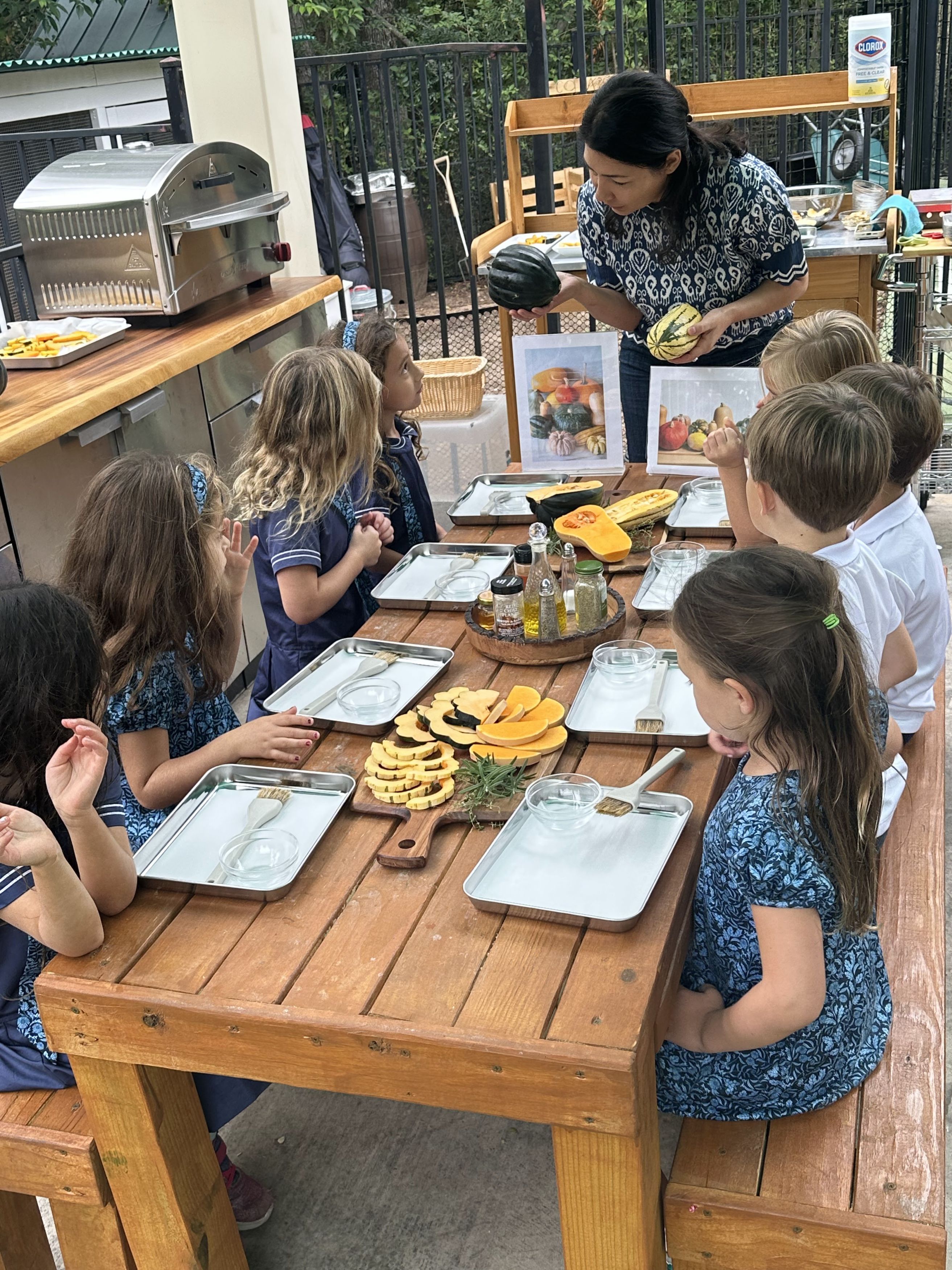Our Approach
 When envisioning the skills our graduates will need, we believe students need an entrepreneurial spirit, confidence to explore innovation and a character that is rooted in integrity to collaborate and solve problems. Immersing students in experiential learning, such as hands-on nature activities, entrepreneurial projects, daily Spanish language practice, strategic thinking through chess, and farm-to-table experiences, we aim to cultivate the leaders of tomorrow who can pivot and think creatively to solve problems.
When envisioning the skills our graduates will need, we believe students need an entrepreneurial spirit, confidence to explore innovation and a character that is rooted in integrity to collaborate and solve problems. Immersing students in experiential learning, such as hands-on nature activities, entrepreneurial projects, daily Spanish language practice, strategic thinking through chess, and farm-to-table experiences, we aim to cultivate the leaders of tomorrow who can pivot and think creatively to solve problems.
The Compass School of Texas offers a robust core curriculum with a unique blend of the Reggio Emilia philosophy and project-based learning. We define child-centered as valuing and respecting children’s thoughts, inquiries, and ideas. Educators plan and design lessons by providing multiple lenses for each topic and guiding students to explore with creativity and imagination. Striving to nurture a sense of belonging and academic excellence, Compass educators plan lessons designed with multiple lenses for each topic, guiding students to explore resolutions with data and their imaginations. Students are encouraged to love learning, and educators are committed to finding the profound potential in every student. Working in small groups to gain true comprehension of subjects, students process understanding through high-level thinking.
Parent partnership is paramount and we are committed to positively impacting families for generations to come. Our School fosters student agency, inspires confidence to ask questions, and ultimately develops independent thinking. We nurture well-rounded students who exhibit academic excellence and a spirit of creative exploration and innovation. We believe that analytical thinking is at the core of learning so we completely involve students in analyzing stories, solving problems, and hypothesizing the outcome of experiments.
Reading and Writing
Reading and writing both depend on fluent understanding and use of language at many levels. Each enhances the other. Students are taught to compose in stages: studying the genre in which they are going to write, generating and organizing ideas, producing and iterating on a draft, revising, editing and proofreading, and publishing. They engage in these stages by seeing explicit models of expert writers, working with a peer or teacher to achieve a goal, and monitoring their own progress independently. The ability to construct an argument and form an opinion hinges not only on exposure to great literature, but on a robust writing process that promotes grammar and mechanics, sentence structure, and voice. Students learn that their individual voice has the power to inspire, persuade, and teach those around them. As a result, students are required to write throughout their academic day and during all content areas.

Language Arts
The Compass Language Arts program combines the essential and interconnected parts of language development: speaking, listening, reading, and writing. The students’ day will begin with a unique provocation to spark learning and curiosity. Students will use this time to share new ideas and engage in peer conversation to learn and ask questions. Our program fully embraces the five pillars of literacy - phonemic awareness, systematic phonics, vocabulary, reading fluency, and comprehension. Students engage daily in a structured phonics program that combines learning isolated sounds with memorizing high-frequency words. We believe that phonics is the essential pathway for students to become successful readers, spellers, and writers.
Mathematics
Compass believes in a conceptual approach to teaching mathematics that emphasizes the importance of practice even after they have mastered a subject. The more students engage in effective practice, the more they will learn. Conceptual learning in mathematics focuses on teaching math by uncovering and understanding why and how math works rather than telling students to memorize isolated facts and formulas. Daily, students problem-solve, develop sound reasoning, and communicate their mathematical thinking in written and oral forms. Students will make connections between mathematical ideas and real-life experiences. Students will work with various natural materials to bring concepts to life and deepen their understanding. By making connections between mathematical ideas and real-life experiences, the learning experience will go beyond the classroom and inspire deeper thinking about how math impacts the world around them.
Humanities
Students are encouraged to do the intellectual work of historians to unlock the knowledge of global eras and events through the process of inquiry. By determining the meaning of an important idea or question for themselves, they are preparing to be active, engaged citizens. Students will recognize the significance of historical occurrences, understand cause and effect, and synthesize information. Students learn from the past to understand the present through studying cultures, continents, geographies, geologies, people, and patterns.  Study of Nature and Science
Study of Nature and Science
The focus of the Compass science program incorporates hands-on exploration. Students take on the role of the scientist to plan and carry out investigations, solve problems, analyze and interpret data, construct explanations, and design solutions. These opportunities allow students to build fundamental concepts over time. Students will develop an appreciation for the natural world and its connections.
World Language
The study of Spanish is an integral part of the Compass curriculum and students have Spanish lessons daily. We believe that students learn through immersion. By learning to speak a new language, Compass students open windows into other people and cultures.
Farm-to-Table & Ecospaces
Compass seeks to give students the tools and skills to lead healthy and environmentally productive lives. Students will learn about food and sustainability through interactive learning. Specifically, students learn how food is grown, nurtured, harvested, cooked, and served. Compass is committed to creating an entrepreneurial spirit within our students and we are teaching students the value of strategy, sportsmanship, and analysis. In our signature Farm-to-Table program, students grow and harvest produce from our gardens and gather eggs from a chicken hutch to then sell for a profit. They engage diplomatically in conversations about nutrition, financial literacy, and marketing as they prepare for our annual Farmer's Market.
Chess: Compass is committed to encouraging students to think analytically and strategically. We are teaching students the value of thinking through the choices and consequences of making a move on the chess board. Lessons of sportsmanship are also intertwined in these games. Students will learn the etiquette, rules of the game, and strategy of chess which can relate to real-life scenarios. Additionally, numerous research has found that Chess helps improve problem-solving and math skills, creative thinking, strategic thinking and planning, pattern recognition, and memorization skills.
